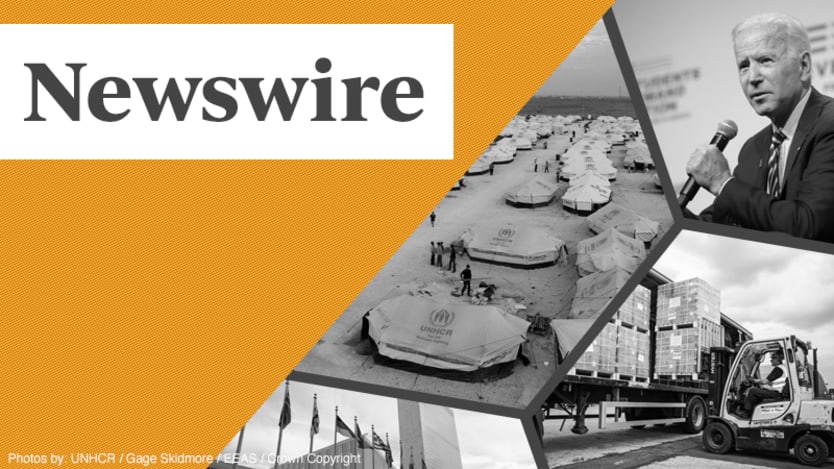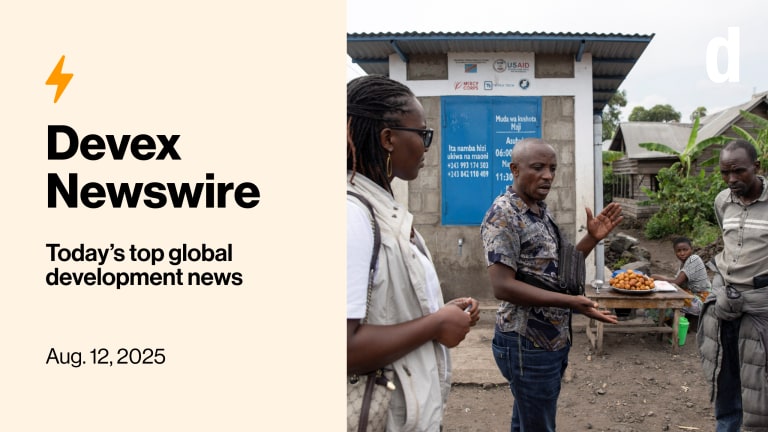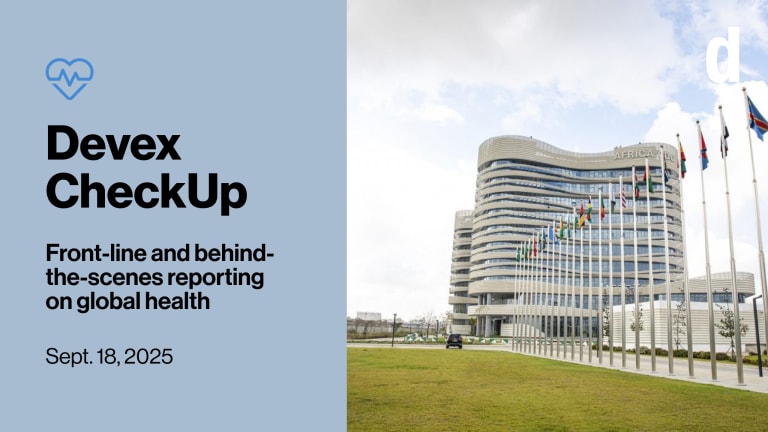
The International Committee of the Red Cross tells my colleague Will Worley that a cyberattack that compromised personal information on its servers fits the profile of a state or “state-like” hacker.
The identity of the hackers who compromised the confidential, personal data of more than 500,000 vulnerable people is still unknown, says Massimo Marelli, ICRC’s head of data protection. Marelli cautions against jumping to any conclusions, but says that forensic analysts described the hack as “a highly sophisticated and targeted operation.”
In its wake, ICRC Director General Robert Mardini outlines the multiple ways it could harm people whose data was compromised — many of whom were in the system because they had been separated from their families by conflict. ICRC says its primary concern is making sure that no harm is done with the data.
Last week, U.S. officials — including USAID Administrator Samantha Power — publicly condemned the hack and called for whoever perpetrated it to be held accountable. In a statement, State Department Spokesman Ned Price calls on other countries to “join the ICRC in raising the alarm about this breach.”
This is a preview of Newswire
Sign up to this newsletter for an inside look at the biggest stories in global development, in your inbox daily.
For a humanitarian organization that adheres to principles of neutrality and impartiality in order to work in contested places, the middle of an international cybercrime dispute is not a good place to be.
“We wouldn't want the findings to be exploited for political reasons,” Marelli says, adding that attribution for the attack wouldn’t necessarily be “conducive to our capacity to operate in a neutral, impartial, and independent manner.”
Exclusive: ICRC says cyberattack was 'state-like' in nature
On data security: Experts tell Devex that the humanitarian community must prepare for its digital systems to come under attack. And two op-ed pieces discuss how NGOs can better protect sensitive data and how to increase civil society group’s cyber resilience.
+ Devex Pro subscribers can learn the steps on how to mitigate cybersecurity risks. Not yet on Devex Pro? Try it out for free for 15 days.
Be prepared
Over the weekend, African heads of state agreed on a plan to significantly enhance the continent’s health emergency institutions.
Sara Jerving reports that at the African Union’s annual summit of African heads of state, South African President Cyril Ramaphosa presented a report on the state of COVID-19 response on the continent, which heads of state endorsed. Africa CDC Director Dr. John Nkengasong outlined the contents in a press conference. While the details of how these changes will happen are still in the works, African leaders agreed to:
• What Nkengasong described as a “very ambitious project to transform Africa CDC,” aimed at elevating the institution from a specialized technical institution to a public health agency, making it more autonomous and granting it more authority. At its head will be a more powerful director general.
• The creation of an AU Pandemic Preparedness and Response Authority, which would ensure cooperation between African states and health institutions during pandemics, without having to rely solely on countries’ “goodwill.”
• The creation of an epidemic fund, so that resources can be quickly deployed in response to outbreaks.
• The creation of a task force aimed at closing the African health worker gap. For example, the continent needs 6,000 epidemiologists; it currently has 1,900.
Read: African Union calls for bolstered health emergency infrastructure
Africa CDC, meanwhile, is planning to zero in on three areas: engaging with youth on vaccine acceptance, promoting self-testing, and integrating the African diaspora into the continent’s response.
Background reading: “Without Africa CDC leading … I don't think the continent would have perhaps survived COVID to the extent it already has,” says the AU's Dr. Margaret Agama-Anyetei on how the institution managed the continent’s pandemic response. Pro subscribers can get the full insight.
+ For more content like this, sign up to Devex CheckUp, the must-read free weekly newsletter for exclusive global health news and insider insights, and receive the latest edition Thursday.
Going ‘local’
There’s been a lot of chatter recently about who does — or doesn’t — get funding from USAID. For 2021 the results are in, and the list of USAID’s top 10 grantees includes a lot of big, recognizable names. The top three grantees in the last fiscal year were the same as the year before, but one organization recorded a big jump to land at number four.
Devex Pro: Who were USAID’s top grantees in 2021?
Those rankings — and here’s an earlier one for contracts for Pro — are a weighty backdrop to Power’s pledge to direct 25% of the agency’s funding to local organizations.
Of course, as my colleague Adva Saldinger discovers by wading into the soul-crushing depths of USAID’s Automated Directives System, “local” can mean a lot of different things. Just how that word is defined could say a lot about Power’s plans to shake things up.
Defining local: Here's where USAID can start
More for Pro: Devex speaks to the Modernizing Foreign Assistance Network, which promotes more effective and accountable U.S. foreign assistance, to ask: What needs to change for USAID to hit its localization target? And how can the agency’s new website WorkWithUSAID.org help locally led bidders?
Great power competition
The U.S. House of Representatives passed the America COMPETES Act of 2022 on Friday. The bill is aimed at countering economic and national security threats from China. According to lawmakers that would be aided by repealing a cap on U.S. contributions to U.S. peacekeeping and allowing the U.S. International Development Finance Corporation’s to spend $40 billion more and make equity investments.
Catch up: Boosting DFC’s spending cap
For Pro subscribers: How Section 889, or the US Chinese telecoms clause, is causing chaos for NGOs
In other news
Senegalese President Macky Sall is now the African Union chairperson, replacing Democratic Republic of Congo President Felix Tshisekedi. [Xinhua]
The International Monetary Fund has appointed Jens Weidmann, former president of Germany’s central bank, to lead a new independent expert panel aimed at strengthening institutional safeguards. [Reuters]
UNHCR is calling for more aid to support those affected by the fighting in the Benishangul-Gumuz region in northwestern Ethiopia that has displaced some 20,000 people. [Al Jazeera]
Sign up to Newswire for an inside look at the biggest stories in global development.








